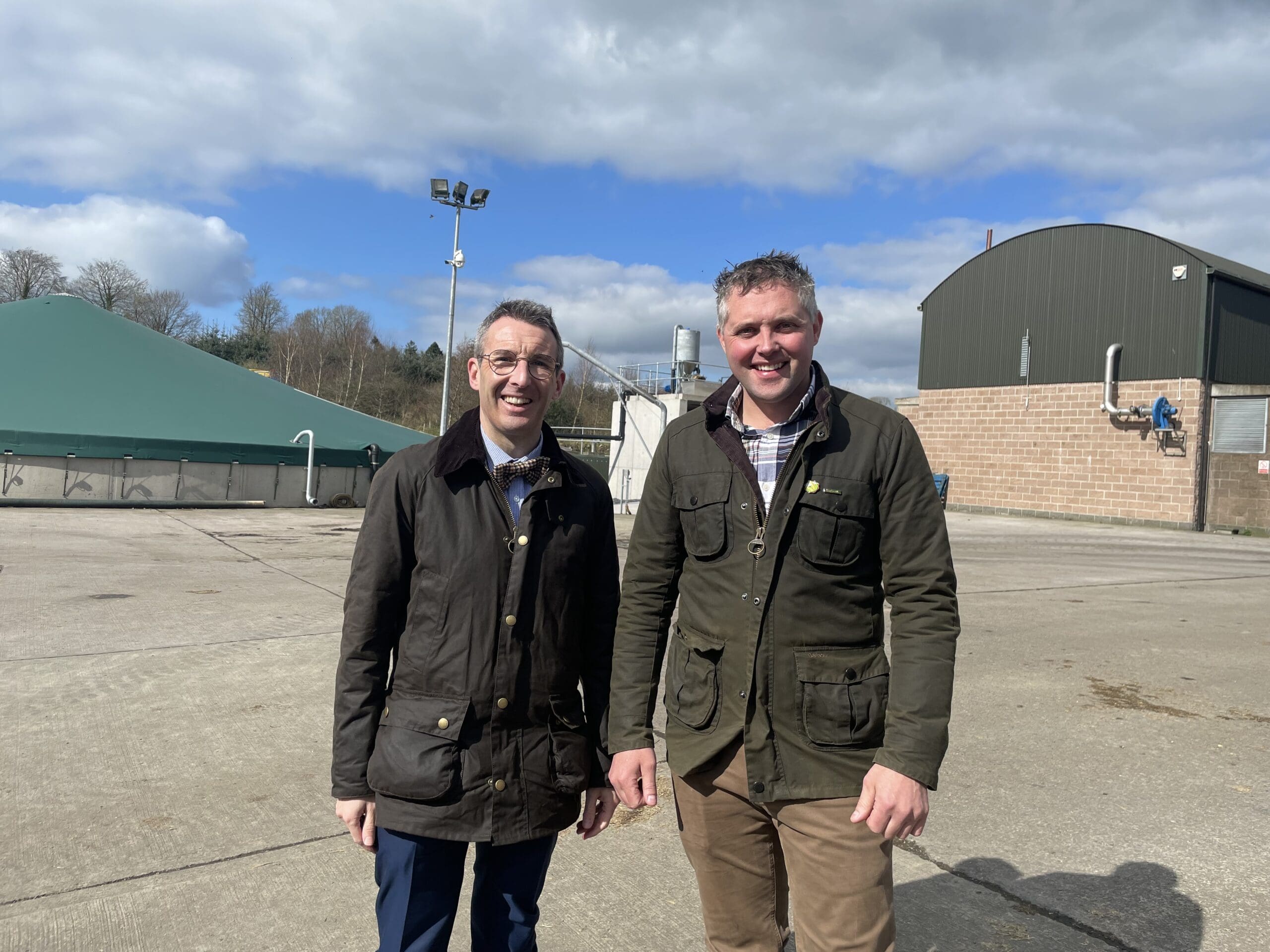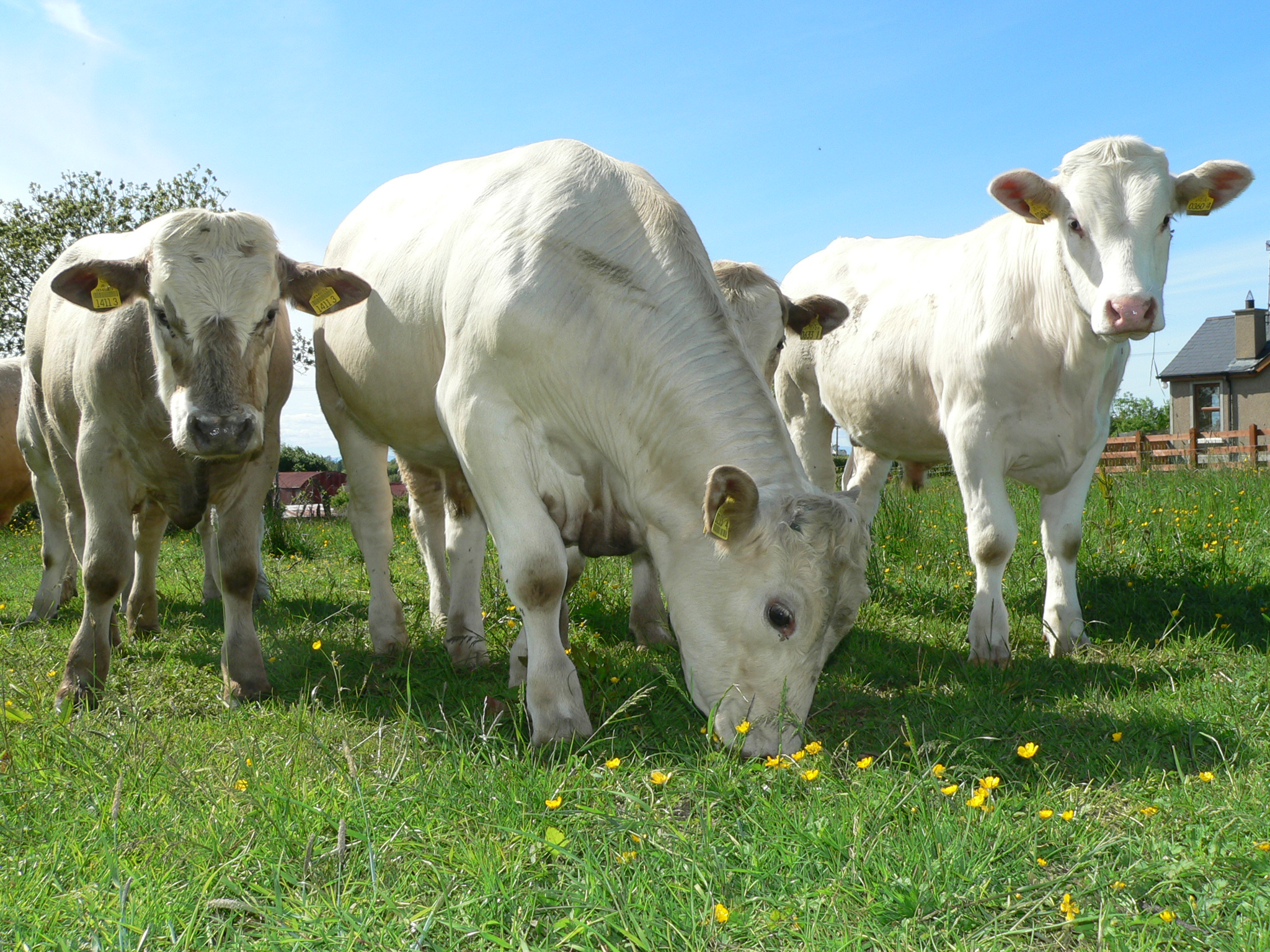
Ulster Farmers’ Union (UFU) arable and horticulture committee chairs hosted DAERA Minister Andrew Muir at Caledon Estate, Co Tyrone, yesterday (20 March), showcasing the many benefits of these sectors for local farming and food production, and the challenges that need addressed.
Speaking after the meeting, UFU seeds and cereals chair and Caledon Estate farm manager Christopher Gill said, “We were delighted to have the DAERA Minister at Caledon Estate yesterday. It was a great opportunity to focus on arable and horticulture. As committee chairs, we engaged with the Minister on the development potential of these commodities as well as the issues that are impacting many farm families across Northern Ireland (NI). By beginning the visit with a farm walk of the estate, the Minister was able to see firsthand how arable and horticulture are helping to build sustainable productions systems in NI and the importance of crop rotation which helps to protect the soil and build organic matter.”
Following the farm walk, DAERA Minister Muir took part in a roundtable discussion with UFU arable and horticulture chairs which was chaired by UFU deputy president William Irvine.
“The roundtable discussion ensured every chair had the opportunity to discuss specific key issues affecting the sector they represent, with the Minister and his officials. Access to plant protection products was an item that was high on everyone’s agenda and the need for a skilled, knowledgeable agronomy service and a dedicated DAERA lead was stressed.
“Labour shortages is a very pressing issue for horticulture with the industry almost totally reliant upon Eastern European workers for planting, harvesting and processing, and was discussed in detail. We highlighted that the extension of the SAW Scheme is beneficial however it needs to be reviewed to ensure that growers have access to the labour they need.
“The lower carbon footprint of arable and horticulture was recognised as was the sectors’ ability to deliver diversity within NI agriculture. To continue growing the sectors’ productivity, efficiency and sustainability, it was acknowledged that a high level of investment is needed for specialised equipment.
“We stated that education, research and knowledge transfer were areas that require more investment. For the benefit of the industry and farmers and growers, arable and horticulture should be included as a module in all agri courses in NI, knowledge technology transfer and personal development opportunities needs to improve, and research and development should be reinstated as it has immense value for the sector. The Soil Nutrient Health scheme and its importance for the land-based sectors was also discussed.
“Overall, the Minister showed great enthusiasm and engagement during his visit, and an eagerness to work with the sectors. We look forward to following up on these discussions and engaging with him further,” said Mr Gill.
Commenting DAERA Minister Andrew Muir said, “The arable and horticulture sectors have a lot to offer the NI economy and environment and I’d like to thank the UFU for this opportunity to meet the representatives of these sectors and discuss the specific challenges they face.
“Moving forward, I will continue to engage across the sector with a view to addressing these challenges and exploring opportunities which exist.”




